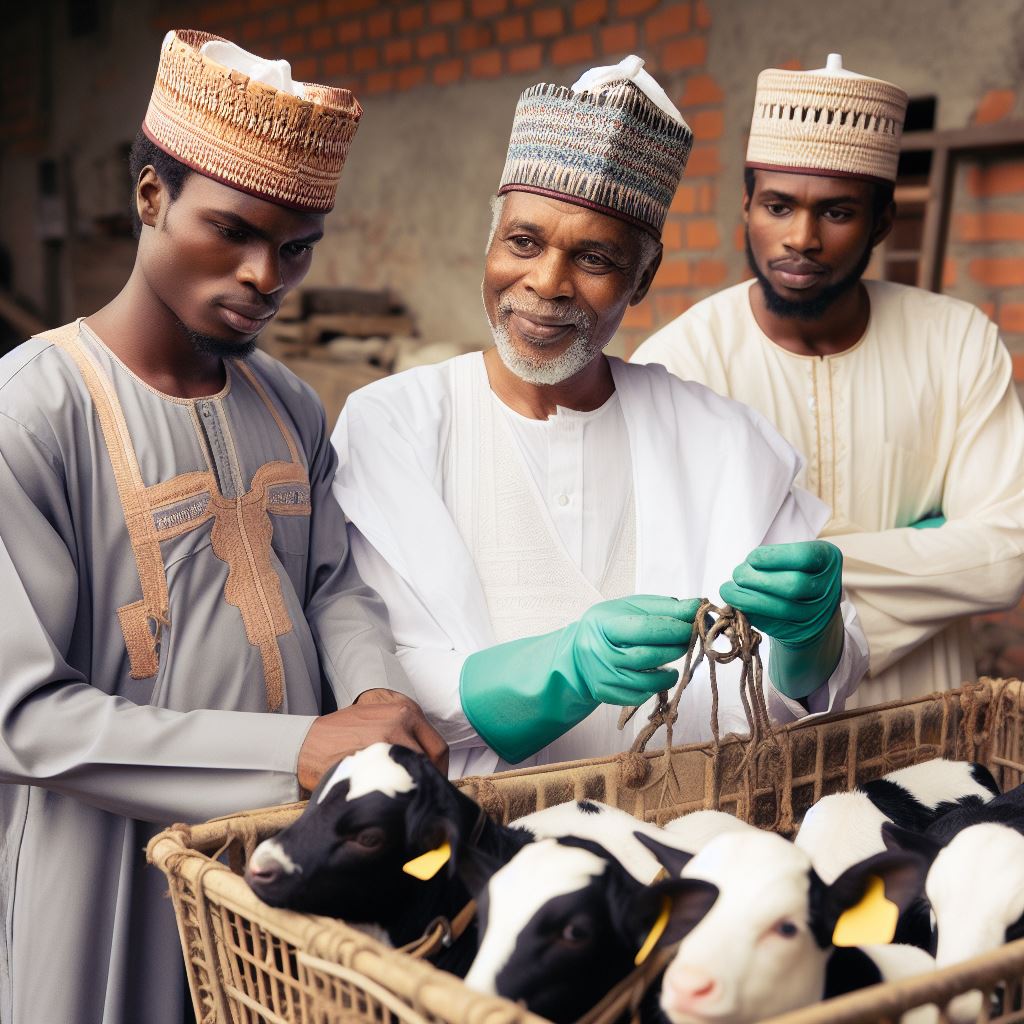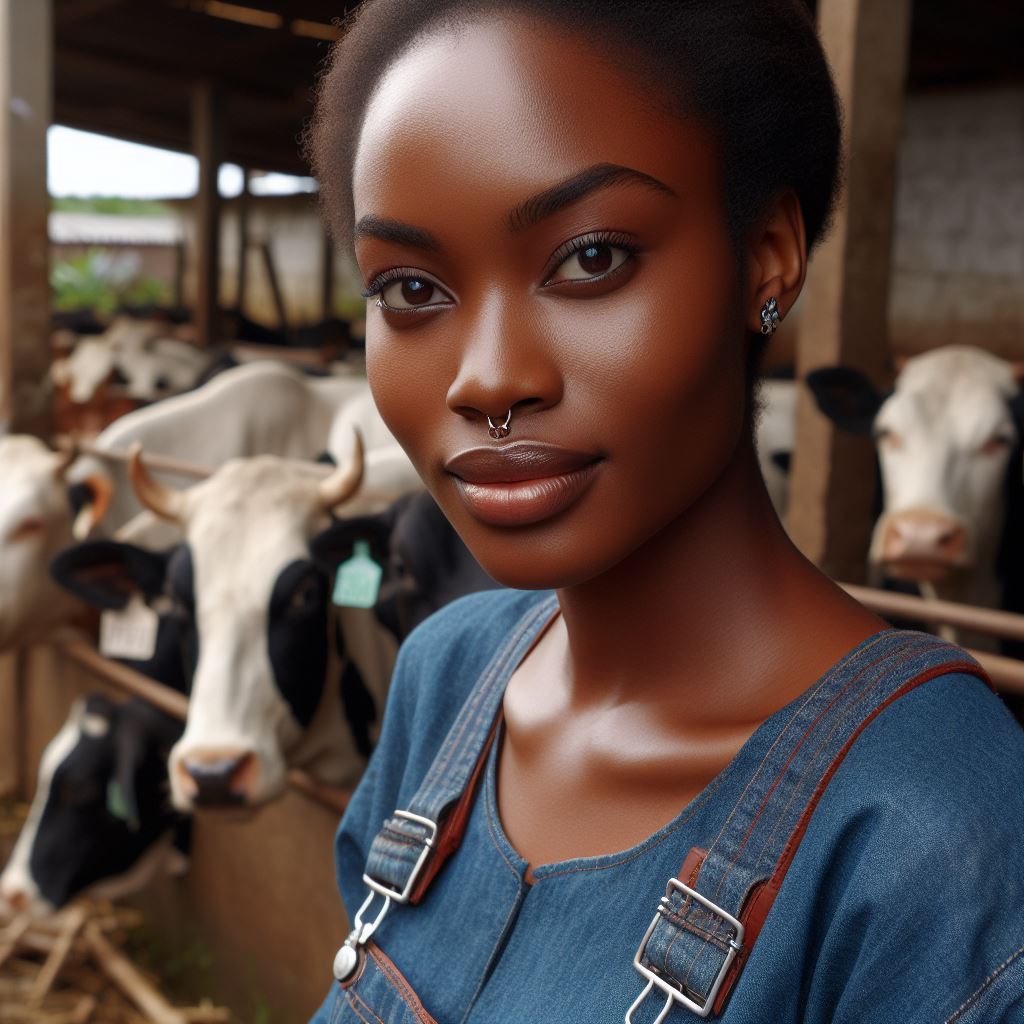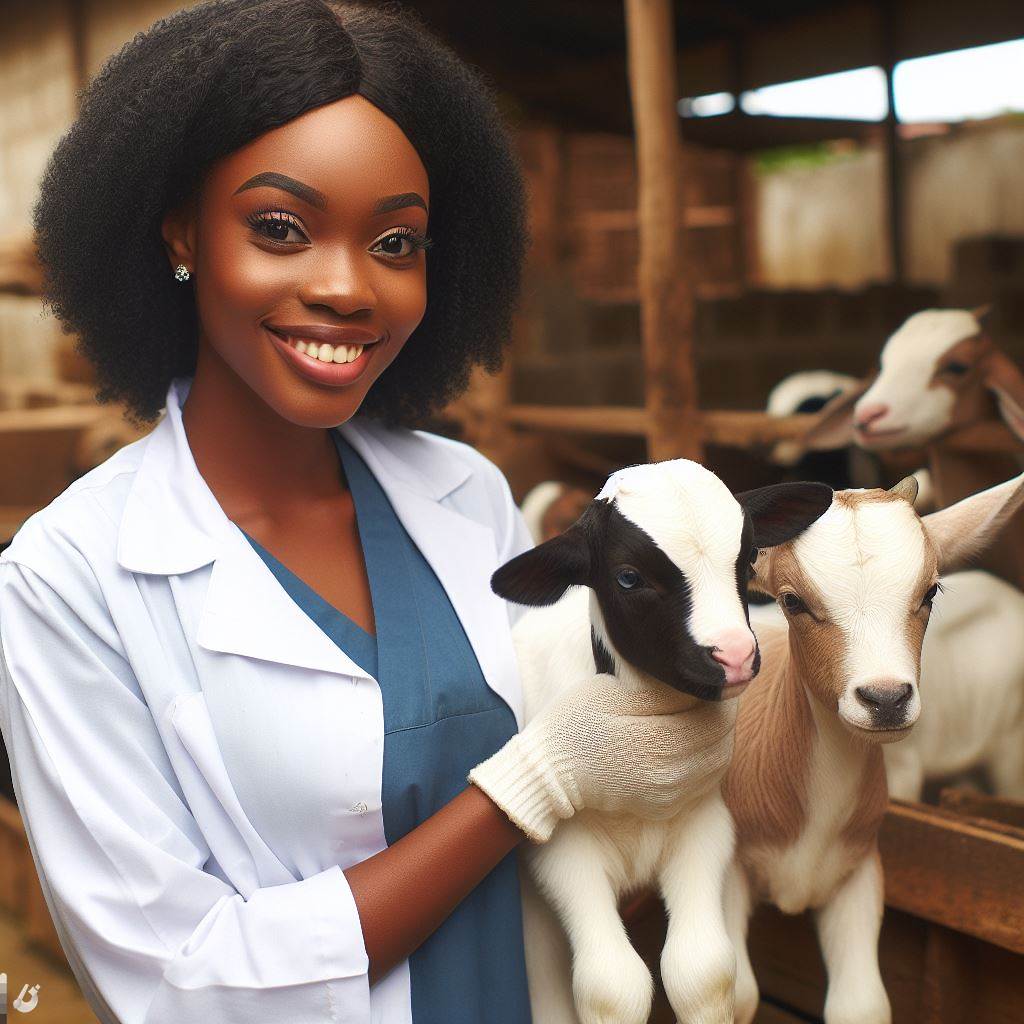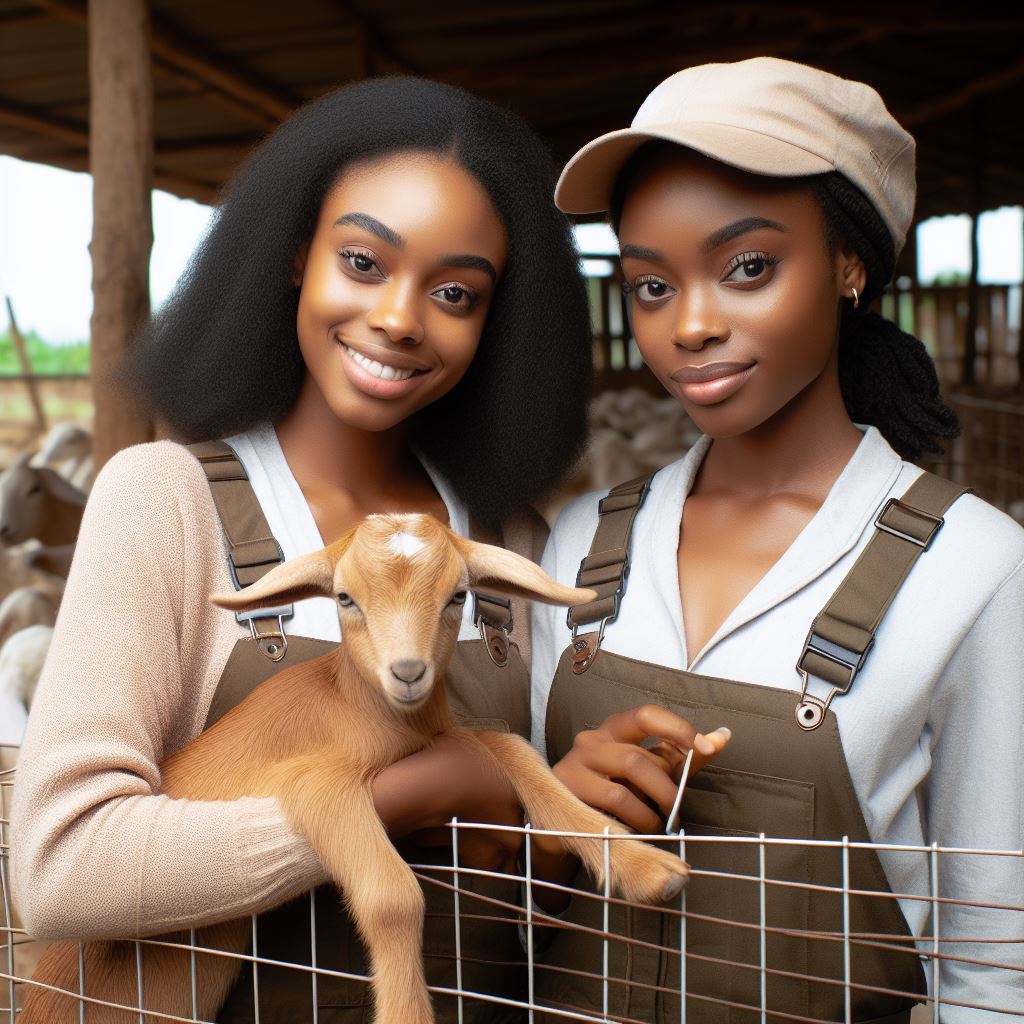Introduction
Animal production in Nigeria involves the rearing and breeding of animals for various purposes, such as food production and economic growth.
This blog post will delve into the unique experiences students face when pursuing animal production in Nigeria.
Lack of modern infrastructure and technological advancements hinders students’ learning opportunities.
Limited access to quality resources and training facilities affects students’ practical skills development.
Inadequate government support and funding impede students’ ability to conduct research and innovate.
Students often face difficulties in securing internships and practical training opportunities.
Interaction with industry professionals is limited, leading to a gap in knowledge transfer and mentorship.
Limited exposure to emerging trends and best practices in animal production restricts students’ growth potential.
Students navigate various challenges, such as inconsistent power supply and limited access to internet connectivity.
Balancing academic demands with practical fieldwork proves to be a constant struggle for students.
Socioeconomic constraints often hinder students’ ability to afford necessary materials and equipment.
Despite the challenges, students display resilience and adaptability, finding innovative ways to overcome obstacles.
Networking within the animal production community helps students broaden their knowledge and opportunities.
Students play a vital role in transforming Nigeria’s animal production sector through their knowledge and skills.
Student experiences in pursuing animal production in Nigeria are shaped by challenges, adaptability, and a passion for contributing to the sector’s growth.
Importance of Animal Production in Nigeria
Overview of the agricultural sector in Nigeria
Nigeria has a thriving agricultural sector that contributes significantly to its economy.
Agriculture is the main source of livelihood for the majority of the population, especially in rural areas.
The sector employs a large portion of the workforce and provides income for many households.
Nigeria’s agricultural sector is diverse, with various sub-sectors, including crop production, livestock farming, and fisheries.
Animal production is an integral part of the agricultural sector and plays a vital role in food production and economic development.
Role of animal production in addressing food security and poverty reduction in Nigeria
Animal production is crucial for ensuring food security in Nigeria.
Livestock, such as cattle, sheep, and poultry, provide a significant source of animal protein for the population.
Animal products, including meat, eggs, and milk, are essential sources of nutrition and contribute to a balanced diet.
Through animal production, Nigeria can meet the increasing demand for food as its population continues to grow.
Furthermore, animal production enhances the country’s ability to export agricultural products, boosting its economy.
Animal production also plays a vital role in poverty reduction in Nigeria.
Many small-scale farmers and individuals engage in animal production as a means of income generation.
It provides employment opportunities, especially for youth and women, contributing to poverty alleviation.
Animal production supports the growth of related industries, such as feed manufacturing and veterinary services.
Investment in animal production can lead to increased productivity, improved livelihoods, and enhanced rural development.
In essence, animal production is of great importance in Nigeria.
The agricultural sector, including animal production, plays a significant role in the country’s economy and provides livelihoods for many Nigerians.
Animal production contributes to food security by providing a reliable source of animal protein and nutrition.
It also plays a crucial role in poverty reduction by creating employment opportunities and supporting related industries.
Investing in and promoting animal production in Nigeria is essential for sustainable development and the well-being of its people.
Read: Fieldwork and Internships: Vital for Nigerian Animal Production
Challenges Faced by Students Pursuing Animal Production in Nigeria
Limited availability of educational institutions and programs specializing in animal production
- The scarcity of institutions and programs specifically catering to animal production poses a major challenge.
- Students interested in pursuing animal production often struggle to find suitable educational opportunities.
- This limited availability hinders the development of a skilled workforce in the field.
- Many aspiring students have to settle for alternative programs or travel long distances to access suitable institutions.
- Addressing the shortage of programs specialized in animal production is crucial for the growth of the industry.
Insufficient infrastructure and resources for practical training
- The lack of adequate infrastructure and resources for practical training is a significant challenge.
- Animal production demands hands-on experience and exposure to modern farming practices.
- Existing institutions often struggle to provide students with the necessary facilities and equipment.
- This inadequacy hampers the practical skills development of aspiring animal production professionals.
- Government and private investments are required to improve infrastructure for practical training.
Lack of government support and funding for animal production education
- The absence of government support and funding for animal production education is a significant obstacle.
- Insufficient financial backing limits the growth and quality of animal production programs.
- Without proper funding, institutions struggle to enhance their curriculum and attract competent faculty.
- Financial aid and scholarships for students pursuing animal production are scarce.
- Government intervention is necessary to provide support and improve the status of animal production education.
In short, pursuing animal production in Nigeria comes with several challenges that hinder the growth of the industry and the development of skilled professionals.
The limited availability of educational institutions and specialized programs, coupled with insufficient infrastructure and resources for practical training, pose significant obstacles.
The lack of government support and funding further exacerbates the difficulties faced by students.
To overcome these challenges, it is imperative for the government and relevant stakeholders to invest in expanding educational opportunities, improving infrastructure, and providing financial support for students interested in pursuing animal production.
Transform Your Career with Expert Guidance
Get personalized mentorship consulting that’s tailored to your unique path. Our expert advice is actionable and exclusive.
Get StartedBy addressing these issues, Nigeria can develop a thriving animal production sector and create a skilled workforce to meet the nation’s agricultural needs.
Read: Examining the Curriculum: Animal Production in Nigerian Schools
Educational Pathway for Animal Production in Nigeria
Preparing for tertiary education in animal production
Embarking on an educational journey in animal production in Nigeria necessitates a meticulous approach.
Secondary school students aspiring for tertiary education in this field should focus on science-oriented subjects.
University or college admissions typically require specific exams and prerequisites.
Students should gear their preparation towards subjects related to agriculture and biology to meet these requirements.
Available degree programs and institutions offering animal production education
Numerous Nigerian universities and colleges provide a spectrum of animal production courses.
Each institution offers diverse programs encompassing theoretical teachings and practical applications.
Prospective students can choose programs tailored to their specific interests, be it Animal Science, Animal Production, or related disciplines.
Comparing these programs helps in understanding their varied specializations.
This comparison assists students in selecting programs aligned with their career aspirations and preferences.
Practical training opportunities for students studying animal production
Theoretical knowledge alone isn’t sufficient. Practical training is integral.
Institutions facilitate practical learning through farm visits, internships, and hands-on sessions, enabling students to apply classroom knowledge in real-life scenarios.
Ultimately, aspiring animal production professionals in Nigeria should focus on a balanced educational pathway.
This includes a strong academic foundation, careful selection of degree programs based on personal interests, and an eagerness to engage in practical experiences to complement theoretical learning.
Read: Evolution of Animal Production Education in Nigeria

Student Experiences and Challenges Faced during Animal Production Studies
Academic workload and expectations
Academic workload demands dedication and persistence, involving courses like biology, chemistry, and agriculture fundamentals.
Students grapple with intensive theory classes and research projects, navigating complex subject matter.
Fieldwork and practical experiences
Fieldwork and practical experiences form a cornerstone; engaging with livestock, farms, and laboratories is crucial.
Hands-on learning enhances understanding but requires commitment amidst strenuous schedules and assignments.
Overcoming financial challenges and funding constraints
Overcoming financial challenges poses a significant hurdle; funding constraints affect access to resources and practical training.
Students seek scholarships, part-time work, or grants to offset expenses, balancing education and financial stability.
Balancing academic and personal life
Balancing academic and personal life requires adept time management; students juggle coursework, internships, and personal commitments.
Maintaining a harmonious balance is an ongoing struggle but vital for holistic growth and well-being.
Coping with limited job prospects in the animal production sector
Coping with limited job prospects in the animal production sector instills uncertainty among students.
They confront the challenge of securing employment opportunities upon graduation in a competitive industry.
Navigating these challenges in pursuit of animal production education in Nigeria demands resilience and adaptability.
Students’ experiences vary, yet their perseverance underscores their commitment to contributing to the sector’s growth.
Read: Overview of Animal Production Courses in Nigerian Universities
Delve into the Subject: International Collaboration in Wildlife Management in Nigeria
Success Stories and Achievements of Students in Animal Production
Noteworthy Achievements in Nigerian Animal Production Education
Students excelling in animal production in Nigeria showcase remarkable achievements.
They’ve spearheaded innovative projects, enhancing livestock breeding.
Several have pioneered sustainable farming methods, effectively increasing agricultural productivity.
Outstanding scholars have secured prestigious research grants, propelling advancements in animal husbandry.
Their studies focus on improving livestock health and implementing eco-friendly farming practices.
Students’ initiatives in community outreach programs have notably uplifted rural agricultural communities.
Inspiring Success Narratives for Prospective Animal Production Scholars
Aspiring students keen on animal production should draw inspiration from these success narratives.
Witnessing fellow students’ accomplishments serves as a beacon of motivation.
These stories emphasize the possibilities within the animal production sphere, fostering enthusiasm among newcomers.
Notable achievements underscore the transformative impact aspiring scholars can make in Nigeria’s agricultural landscape.
They provide tangible evidence of how dedication and passion can drive success.
These narratives exemplify the potential to create positive change in livestock management and agricultural sustainability.
Future students ought to absorb these tales of triumph as a guiding light.
They encapsulate the grit, determination, and vision essential for excelling in animal production studies.
Aspiring scholars can gain insights into diverse career paths within this field, fueling their aspirations for impactful contributions.
In review, celebrating students’ triumphs in animal production bolsters the drive and ambition of future scholars.
These stories illustrate the tangible impact individuals can make in revolutionizing agricultural practices.
They stand as testaments to the incredible potential awaiting those pursuing animal production studies in Nigeria.
Conclusion
Challenges & Experiences
Navigating animal production in Nigeria unveiled multifaceted challenges: limited resources, infrastructural gaps, and market volatility.
Students shared resilient stories, battling constraints to gain hands-on experience, leveraging innovation in husbandry practices.
Adapting amidst adversities, they embraced technology to optimize yields, addressing nutritional deficiencies.
Students demonstrated resilience, fostering community engagement, igniting sustainable practices, and fostering economic resilience.
Encouragement for Students
To aspiring students in animal production: embrace challenges as stepping stones, leverage your passion into innovation.
Your dedication fuels agricultural transformation, ensuring food security, and economic growth.
Remember, each obstacle refines your skills, propelling you toward impactful change.
The nation needs your expertise and vision to revolutionize animal production for a sustainable future.
Your contribution shapes the agricultural landscape, fostering resilience and prosperity.
Final Thoughts
Animal production education remains the cornerstone of Nigeria’s agricultural prowess.
Empowering students cultivates a knowledgeable workforce, enhancing productivity and food security.
It’s imperative to amplify investment in education, research, and infrastructure.
Such initiatives fortify the sector, driving socio-economic development and fostering self-sufficiency.
The collective effort ensures a robust foundation for Nigeria’s agricultural prosperity, safeguarding against global uncertainties.
The challenges unveiled opportunities for growth, cementing the importance of education and innovation in animal production.
Students stand as pillars of change, poised to revolutionize Nigeria’s agricultural landscape.
Embrace challenges, innovate tirelessly, and contribute ardently to sustainably reshape the nation’s animal production sector.
Your journey shapes not only your future but also the nation’s agricultural destiny.




